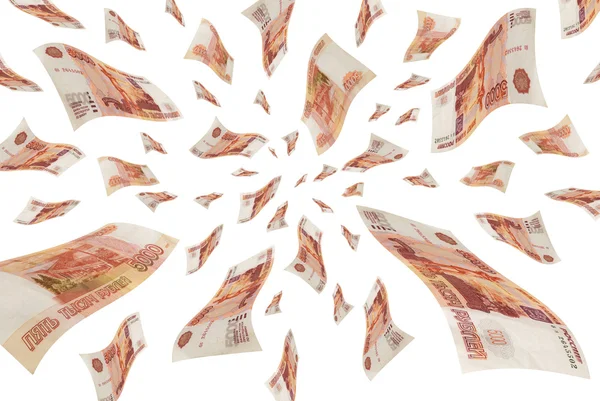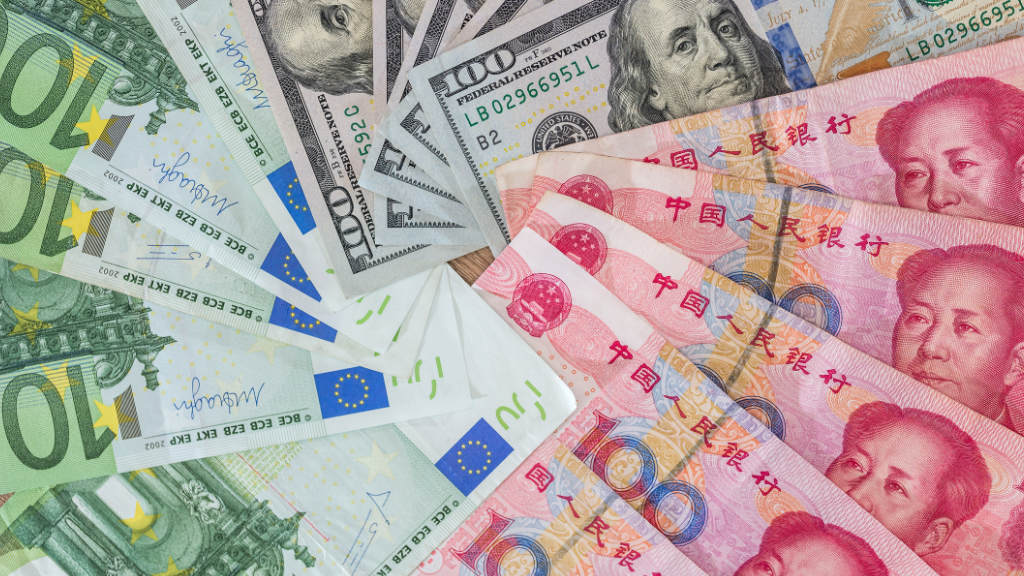Russia’s largest banks are expanding their services to facilitate direct payments abroad in foreign currencies, with new technologies helping to bypass Western sanctions. This means that Russian businesses will once again be able to freely send dollars, euros, or yuan to any country.
Sovcombank has already launched this mechanism, while Sberbank and other Russian banks now offer similar services. This is despite the 19th EU sanctions package, which bans Russian banks from operating, including their foreign branches, overseas.
This is due to a new financial services architecture, with Russia’s state owned Promsvyazbank (PSB) launching its A7 infrastructure, which enables foreign trade transactions regardless of global economic conditions and sanctions. PSB has its roots in Russia’s postal services and telecommunications and has a large presence throughout the Commonwealth of Independent States. It is Russia’s tenth largest bank.
That telecommunications aspect is key as it avoids financial messaging systems such as those operated by SWIFT as well as systems such as China’s CIPS which Chinese banks use and are concerned that it too could be sanctioned. Instead, transactions are carried through the respective telecommunications networks. Sanctioning those would be nigh impossible and quite possibly considered an act of war.
The situation can be realistically described as the EU operating sanctions based on old technology, while Russia and many other countries have moved on to newer, higher technical solutions.
The A7 services and products are now available to individuals, with the cross-border transfer rate being the Russian Central Bank exchange rate plus a 0.36% transfer fee. Transfers are processed on the same day. Direct payments are currently available to China, Turkiye, Brazil, Vietnam, Laos, India, Thailand, and the CIS countries, while offices are also being opened in Africa. The network is expected to rapidly expand.
According to Alexander Kiselev, a Director of the Corporate Unit at Russia’s BBR Bank, A7 fills a role as a telecommunications based credit institution, and is constantly working to expand payment options. He added that BBR works with numerous trusted payment agents (typically other overseas banks), while their transaction fees range from 1% to 2.5% depending on the direction, purpose, and size of the transaction.
Russia’s largest banks are launching new options for cross-border payments in foreign currencies, including the US dollar. For example, Sovcombank has resumed direct payments for businesses on foreign trade transactions.
The bank clarified that payments overseas can be made in dollars, euros, or yuan, with the service allowing payments to over 100 countries. Fees start at 0.3% of the total amount, with a processing time of two business days. Businesses can purchase currencies, if they wish, to hedge against future payments. This reduces currency risks compared to mechanisms in the West occur at the exchange rate at the time of the transaction.
Other Russian banks are also expanding their cross-border payment options for businesses. Sberbank offers payments with a commission starting from 0.3%, although there is a minimum fee of ₽2,500 (US$30). According to Sberbank, it has successfully implemented transactions with over 90 countries.
Anti-Russian Sanctions Introduced New Fintech

Following the withdrawal of international payment systems from Russian use, restrictions on SWIFT transfers, and the sanctioning of nearly all Russian banks, international transfers to and from Russia significantly declined. The intent was to cripple the Russian economy.
However, Russian banks and fintech companies subsequently began seeking alternative ways to resume transfers for individuals and companies. That has now come to fruition – an outcome that the European Union had not catered for and which has now left it with outdated technology and billions spent on an economic conflict they have now lost.
Alexey Poroshin, CEO of Russia’s First Group, international property developers, has said that “The international payments market in Russia exists and is vibrant. Every major financial institution already has the ability to send payments abroad. Many players operate through agency schemes. Furthermore, businesses continue to make payments from OTP Bank or Raiffeisenbank accounts anywhere in the world in foreign currencies. It’s now easy to send payments in yuan, dirhams, euros, and dollars.”
The EU announced a 19th sanctions package against Russia. It will cover the energy, finance, and trade sectors, according to European Commission President Ursula von der Leyen. In the financial sector, the EU has proposed a complete ban on operations by domestic banks, including financial institutions operating in third countries, as well as restrictions on the Mir system and cryptocurrency platforms.
Poroshin however says that the new EU restrictions will not impact Russia’s domestic financial sector: “Over the past three and a half years, a vast infrastructure for sending cross-border payments has already been created, and new schemes are constantly emerging. Even the possibilities for direct transactions are expanding, despite sanctions. This is important because some European institutions refuse to work with agents, primarily in the crop and livestock sectors. The new measures will not lead to a reduction in trade volumes.”
Ekaterina Kosareva of VMT Consult, an international Russian logistics company agrees, saying that “Banning Russian banks from operating in all countries is an infringement on national sovereignty and an attempt to exert pressure on the domestic economies of foreign countries. Such a measure will essentially be ineffective, as escape routes will be immediately devised. As soon as one player launches direct payments with a low commission and virtually no country restrictions, like Sovcombank, other financial institutions will follow suit.”
New Service Is Resumed

The main effect of returning to normal direct transfers for the Russian economy, despite sanctions, is a reduction in the cost of raw materials and consumables for producers and finished goods for importers, as well as a reduction in the price of the final product for the end consumer. This will have a positive impact on inflation and an increase in foreign trade turnover.
In addition, Russian banks are building direct transfer systems themselves, according to Alexander Abramov, head of the RANEPA Laboratory for Institutional and Financial Market Analysis. These systems can be based on either SWIFT services and technology or alternative international payment platforms. Unlike agency schemes, such transactions minimize the risks associated with intermediaries, reducing the likelihood of loss of funds and fraud.
As concerns the new alternatives, Svetlana Frumina, head of the Department of Global Financial Markets and Fintech at Plekhanov Russian University of Economics says that settlements are also being made that bypass traditional correspondent chains, using alternative mechanisms. She said that “These include “payment agents” who conduct transactions under various schemes for a commission; banks with branches in other countries; cryptocurrencies pegged to the dollar; direct transactions in foreign currencies (including yuan); barter; offsetting and netting systems; and the use of profits from joint ventures, as is practiced in Vietnam.”
Previously, companies often used cryptocurrency transfers using Bitcoin, Ethereum, and other digital assets for cross-border payments, notes Alexander Potavin, an analyst at FG Finam.This also included the possibility of payments through systems in developing countries, such as China’s UnionPay, Indian platforms, and Russia’s Mir system with international integration. Barter schemes, whereby one batch of goods was exchanged for another with mutual offsetting, were also used, as were payments through letters of credit and bank collections (debiting funds upon presentation of documents).
Potavin said that “Direct transfers are preferable, as each alternative requires intermediaries to remunerate them—commissions and hidden transaction costs. Furthermore, such payments typically involve a long chain of participants, making them less flexible and prolonging settlement times. Bilateral transactions reduce the number of external intermediaries, lowering costs and the risk of technical failures and external political pressures.”
Further Reading
The New SCO Development Bank May Compete With SWIFT: Russian Finance Minister

 Русский
Русский













